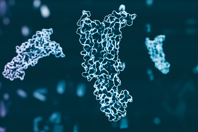INSIGHTS ON DRUG DISCOVERY
-
Cell-Based Bioassays For Potency Testing: From Assay Design To GMP Readiness
A concise guide to designing and optimizing cell‑based bioassays for GMP readiness, emphasizing biological relevance, robustness, and strategies to reduce variability and strengthen potency data for complex therapies.
-
What FDA CRLs Reveal About E&L
FDA feedback shows E&L gaps still delay approvals. This preview flags common issues — from unknown compounds to weak tox data — and offers ways to strengthen E&L approaches and cut regulatory risk.
-
From Promise To Patients: Smarter Pathways To Scale In Cell And Gene Therapy Manufacturing
As the field evolves, the strategies developers choose may prove just as influential as the therapies themselves in determining how quickly innovation reaches patients.
-
The Science Of Cell Line Development For Biologics
Selecting and engineering the right cell line is not simply a technical milestone; it is a strategic decision that shapes cost of goods, development timelines, and the overall probability of success.
-
The Gateway Delivery To The Brain1/30/2026
Nose‑to‑brain delivery enables targeted neurological treatment by using direct neural pathways to boost precision and limit systemic exposure, with new formulations and devices driving rapid progress.
-
Covalent Warhead Reactivity: A New Look At GSH Reactivity Assays1/26/2026
Understanding covalent warhead kinetics is key to reducing safety risks early in discovery. Learn about a new approach to GSH‑based measurements that offers clearer predictors of toxicity.
-
Flow Chemistry For Contemporary Isotope Labeling1/26/2026
Gain insight into how late‑stage exchange and flow‑based methods enable efficient access to labeled molecules for pharmaceuticals, mechanistic studies, and analytical applications.
-
Optimizing Lentiviral Producer Cell Line Yield12/15/2025
Producer cell lines boost lentiviral manufacturing efficiency via high-density culture, multiple harvests, and additive optimization for scalable production.
-
Patient-Centric Formulations In Pediatric Adherence11/13/2025
Improving pediatric adherence requires age-appropriate formulations, taste-masking, and swallowability strategies. Regulatory, clinical, and technological insights help overcome barriers and support safer, more effective therapies for children across developmental stages.
DRUG DISCOVERY SOLUTIONS
-
Advance biopharmaceutical development with robust HCP detection strategies and high-quality antibody reagents to ensure product purity, safety, and regulatory compliance.
-
The platform accelerates development of cell lines for cGMP production by using robust procedures and reliable raw materials, including chemically defined media, adapted Chinese hamster ovary (CHO) cells, and proprietary expression plasmids, to rapidly produce high levels of recombinant protein.
-
Explore a suite of services designed to accelerate drug discovery and development, from custom reagent production and high-throughput screening to advanced in vitro pharmacology and DMPK assays.
-
Our mission is clear: to help sponsors reduce costs, shorten timelines, and de-risk development, so they can achieve critical milestones, secure investments, and advance life-changing therapies.
-
Leverage integrated platforms for targeted protein degradation and molecular glue solutions, from ligand identification to IND-enabling studies. Advanced screening and structural biology support accelerate discovery.














